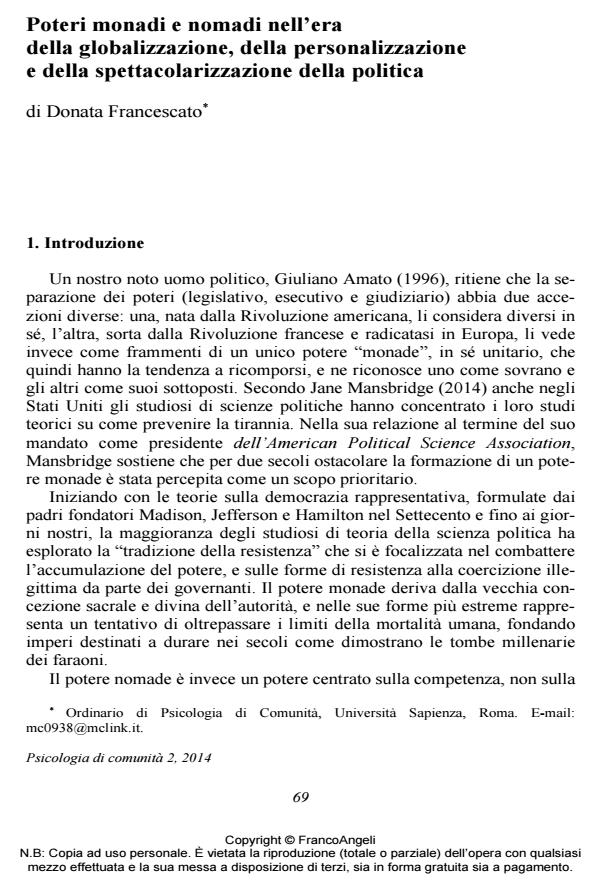Monadic and nomadic powers in the era of globalization, personalization and spectacularization of politics
Journal title PSICOLOGIA DI COMUNITA’
Author/s Donata Francescato
Publishing Year 2015 Issue 2014/2
Language Italian Pages 11 P. 69-79 File size 43 KB
DOI 10.3280/PSC2014-002006
DOI is like a bar code for intellectual property: to have more infomation
click here
Below, you can see the article first page
If you want to buy this article in PDF format, you can do it, following the instructions to buy download credits

FrancoAngeli is member of Publishers International Linking Association, Inc (PILA), a not-for-profit association which run the CrossRef service enabling links to and from online scholarly content.
This article examines the interactions between social and institutional contexts and individual characteristics of political leaders which may favor the emergence of monad and nomad types of power. Globalization processes promote nomad power with decision making shifting to diverse international settings. However the increased role of media infotainment promotes the personalization of politics; building and destroying the popularity of political leaders, who are mostly males with self-enhancement values; who tend to prefer monad ways to exercise power. Only increasing the number of elected women and young people who uphold self-transcendence values will nomad types of power have more opportunities to emerge in our political institutions.
Keywords: Power, leadership, personalization, politics, gender.
Donata Francescato, Poteri monadi e nomadi nell’era della globalizzazione, della personalizzazione e della spettacolarizzazione della politica in "PSICOLOGIA DI COMUNITA’" 2/2014, pp 69-79, DOI: 10.3280/PSC2014-002006